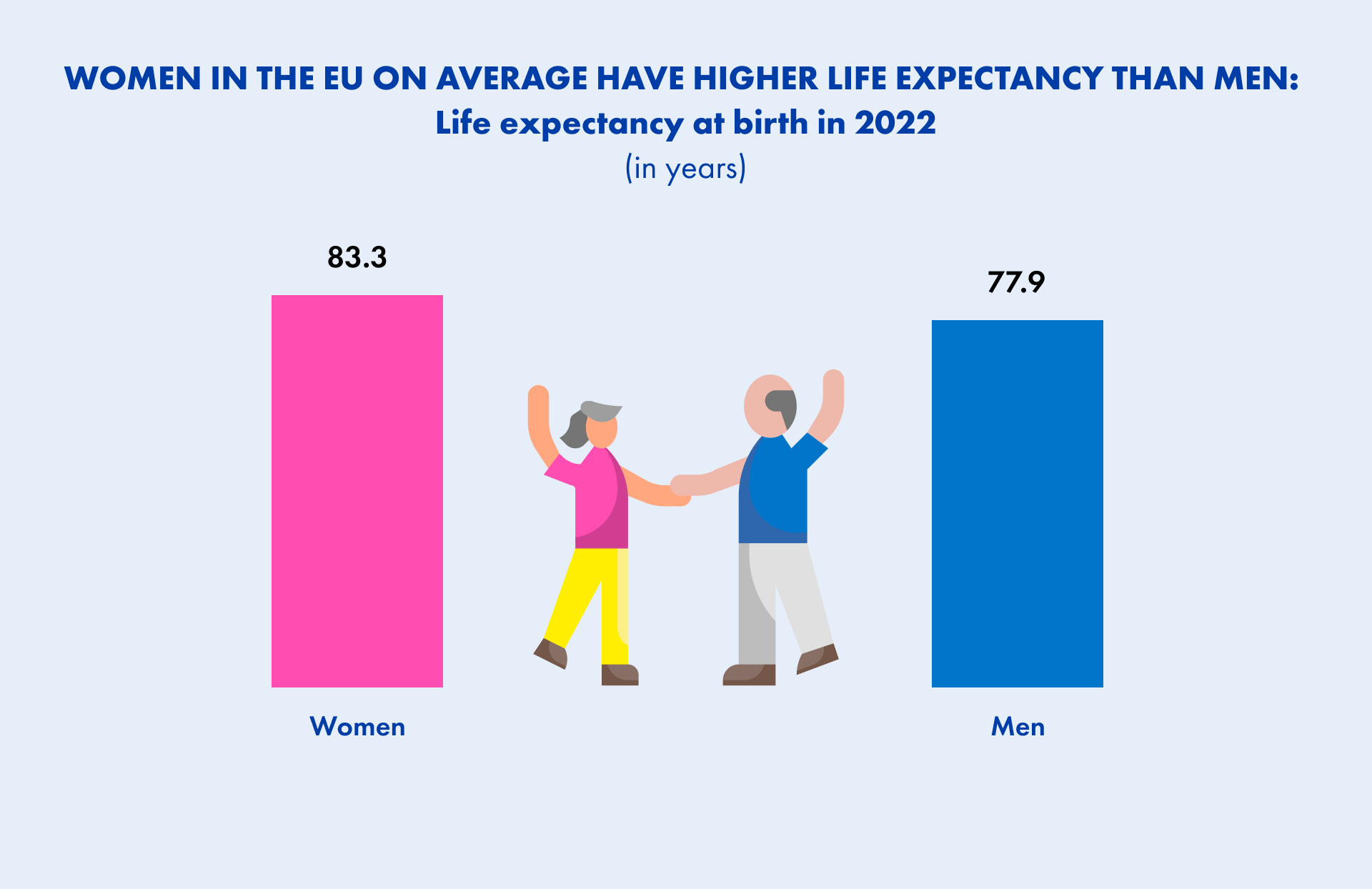Issue #160
Guten Morgen! Welcome to Krautshell, your insider’s guide to navigating the intricacies of European politics and regulatory landscapes. In recent developments, the EU Commission is under fire for failing to adequately safeguard personal data in Microsoft software, while the EU Parliament has passed the AI Act to regulate AI use. On the electoral front, German FDP MP Marie-Agnes Strack-Zimmermann emerges as a key contender challenging Ursula von der Leyen’s leadership in the upcoming EU elections. Shifting our focus to UK politics, Lee Anderson’s defection to the Reform Party signals potential voter shifts, amidst concerns over immigration stances and criticism of the government’s handling of racist comments. Additionally, Ansgar explores the concept of ‘strategic patience’ or ‘masterly inactivity,’ advocating for a nuanced approach amidst global challenges. Stay tuned for insightful analysis to enhance your weekend relaxation and kickstart your week with positivity. Happy reading and here’s to a great start to the new week. Anna Szilvia WHAT TO WATCH THIS WEEK: EU // Microsoft According to the European Data Protection Supervisor (EDPS), the EU Commission is in hot water for cozying up too closely to Microsoft’s software suite. It seems they’ve forgotten to install sufficient safeguards against shipping personal data off to lands beyond the EU, violating their own rules. The EDPS aired these grievances on Monday, accusing the Commission of neglecting to specify exactly what kinds of personal data are being harvested and for what explicit purposes when using Microsoft 365. In a stern finger-wagging session, the EDPS set a deadline of December 9th for the Commission to shape up and play by the European data protection rules: “It’s the EU’s job to ensure that any handling of personal data, whether inside or outside the EU, including with cloud-based services, comes with rock-solid data protection guarantees and measures,” remarked Wojciech Wiewiórowski, the Data Protection Supervisor, in a tone that says, “You should know better!” This reprimand follows a three-year-long investigation, sparked in May 2021 after the Schrems II ruling. The spotlight has been on the transmission of data to Microsoft via the office software package known as “Microsoft 365,” which includes trusty old Word and Excel. It’s like catching someone with their hand in the cookie jar—except the cookies are sensitive personal data, and the jar is a multinational tech corporation’s server. REGULATORY INSIGHTS: AI is everywhere and here to stay In the complicated world of the European Union, where complexity is as common as morning coffee, the regulation of artificial intelligence (AI) has emerged yet another chapter in the never-ending saga of EU bureaucracy. After a process more reminiscent of a wild roller coaster ride than legislative diligence, the EU Parliament has finally given the green light to the AI Act – a law that aims to regulate the use of AI and is unprecedented in its ambition. This landmark legislation, approved with 523 votes in favor, 46 against, and 49 abstentions, introduces safeguards on general-purpose AI, limits law enforcement’s use of biometric identification, and bans on social scoring and AI that manipulates or exploits vulnerabilities. The AI law is a prime example of the struggle to tame a technology that evolves faster than politicians change their minds, now with clear obligations for high-risk AI systems to assess and mitigate potential harm. It aims to create a framework that not only allows but encourages innovation by ingeniously categorizing AI systems into risk groups, all while trying to protect citizens from the darker side of the technology, including controversial provisions on facial recognition and exemptions for security agencies. The AI law, now bolstered by measures to support innovation and SMEs through regulatory sandboxes and real-world testing, may be a milestone, but it’s certainly not the end of the story. As technology continues to evolve, so does the debate about how to regulate it, with further adjustments to the law inevitable to keep pace with developments and ensure that AI is used for the benefit of society. The EU, with the AI Act, remains a fascinating example of how to navigate technological progress in a sea of complexity and political minutiae. This regulation is living proof that progress is possible despite bureaucratic hurdles and complicated negotiations, setting a global standard for trustworthy AI that balances innovation with fundamental rights and safety. But getting there is anything but a walk in the park. AI is everywhere and here to stay – and with it, the endless challenges and opportunities it presents to our society. THE BIG PICTURE: MASZ vs VDL The European liberal party ALDE is set to crown German FDP MP Marie-Agnes Strack-Zimmermann as its lead candidate for the EU election. The lack of suspense could rival a bedtime story recited by a monotone robot: Strack-Zimmermann was the sole contender to throw her hat in the ring before the internal deadline of Feb. 29. Her nomination was backed by a “clear majority,” which in political speak probably means she won by default. Cue the confetti cannons and the underwhelming fanfare! This development comes hot on the heels of Estonian PM Kaja Kallas politely declining the role last week, leaving Strack-Zimmermann as the last liberal standing. So, who exactly is MASZ? Well, she’s the chair of the German parliament’s defense committee, and she’s been making waves as one of Germany’s loudest voices on Russia’s war. She’s been beating the drum for stronger support for Ukraine’s defense and hasn’t been shy about throwing shade at Chancellor Olaf Scholz. The election battle is now set to take aim at the woman at the helm of the EU Commission, Ursula von der Leyen. The CDU politician was crowned as the lead candidate of the European People’s Party (EPP) last week. Today, she plans to finalize the European election program together with the leadership of the CDU and CSU. The FDP strategy: Strack-Zimmermann intends to dissect von der Leyen’s five-year legacy in the coming weeks: portraying the CDU woman as a green Commission president and politician who hasn’t exactly propelled Europe forward, burdening the economy with more reporting obligations instead of lightening the load, and turning foreign and defense policy into a political wasteland. So, it’s shaping up to be Strack-Zimmermann vs. von der Leyen. Two German women ready to duke it out for their European party families in the campaign. “Country, constituency, then party”. This was the response from Lee Anderson – Reform UK’s newest (and only) MP – when asked if his defection from the Conservative Party could hurt his former colleagues. Reform is a right-wing populist political party founded by Nigel Farage in 2018 as the ‘Brexit Party’ and renamed after the UK withdrew from European Union. Lee Anderson is the same politician we wrote about a few weeks ago, who was dismissed by the Prime Minister after he made some divisive, and many claimed racist, comments about London’s Mayor. After wandering Parliament in search of a Party, Anderson’s announcement he was joining Reform was one of the most predictable ‘shock moves’ to hit Westminster. Although the Reform Party isn’t expected to secure many seats in Parliament when voters take to the polling booths later this year, the often-controversial party, which is most frequently noted for its hard-line approach to immigration policy, is still a cause for concern for the Conservatives. It has the potential to tempt away voters who previously would’ve voted Conservative but want to see their government move further to the right. Whether this happens in practice is yet to be seen. Following this, the Government wase forced to deal with another related issue when inflammatory, and, again, many claimed racist, comments made by the most significant financial donor (to the tune of £10 million) to the Conservatives about current MP Diane Abbott (the first black woman elected in the UK) were made public. In a 2019 meeting Frank Hester said looking at Abbott made you “want to hate all black women” and horrifically stated the MP should be shot. While Downing Street eventually released a statement calling out the racist comments, this was disappointingly slow, especially as just two weeks ago the Prime Minister delivered a press conference declaring how racism has no place in the UK – as Labour Leader Keir Starmer made sure to highlight in Parliament this week. In other news, things looked up slightly for the Prime Minister towards the end of this week, with the announcement the UK economy grew by 0.2% in January. While the UK remains in a ‘technical recession’, it was still good news for the Government who will be hoping next quarter’s figures show GDP back in the black. Source: ec.europa.eu Here are three appointments for next week that you should have on your radar: Masterly inactivity How many to do lists did you ever compiled in your life? And how many “stop doing” lists? My guess is: Plenty of the first, few if any of the second. Kind of strange, isn’t it? We have plenty of empirical scientific evidence that doing nothing is often the best choice. Tim Harford called it “masterly inactivity”. I call it strategic patience. But why is strategic patience so hard to do? Because we as individuals and organizations often have an „action bias“. Some managers even make “bias for action” their mantra. Strategic patience or „masterly inactivity“ does not mean indifference. It is a carefully selected strategic response to a challenge that you have well understood. „Masterly analysis“ comes before masterly inactivity, for sure. On that note: Have to engage in some masterly inactivity. See ya! Issue #160


FIRST, SOME SOLID INTEL:
AND WHAT’S UP IN GREAT BRITAIN?
TAKE A BREAK, GIVE YOUR EYES A REST:

LONG STORY SHORT:
OUTLOOK:
When?
What?
March 20-21st, 2024
2024 ALDE Party Extraordinary Congress (Alliance of Liberals and Democrats for Europe)
March 21-22nd, 2024
EU Council Summit
March 23rd, 2024
Presidential Elections in Slovakia
WHAT’S ON OUR MINDS:




